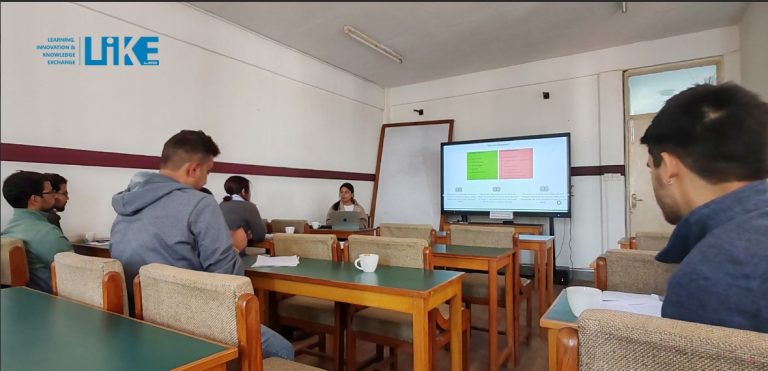
BALKUMARI, LALITPUR, 13th November, 2025 – The session delved into the concepts and practices of scaling impact within development initiatives – what it means to scale out, scale up, and scale deep, complemented by an introduction to the DOER and PAYER at Scale framework. The workshop also highlighted the importance of responsibility checks and stakeholder roles in ensuring responsible scaling.
Participants’ Reflections and Perspectives
During the “Name one thing you would like to scale” segment, participants shared diverse ideas. Suggestions ranged from expanding workshops like these, from both to reach more learners (scaling out) and deepen understanding (scaling deep) to increasing practical learning opportunities within academic programs. Discussions included scaling up the Melamchi Water Supply Project, improving public spaces by adding seating areas near local water bodies, and integrating more practical, field-based learning to strengthen student preparedness.
Key Highlights
- Scaling as a long-term, cyclical process often spanning 15–20 years in public-sector contexts, requiring continuous reflection, learning, and adaptation.
- The need for clarity on what is being scaled—whether an innovation, practice, program, or system.
- The chosen pathway must align with contextual realities, available resources, political dynamics, and partnerships across government, civil society, and the private sector.
- Useful tools to determine who will implement and who will finance scaling efforts, reinforcing the importance of affordability, contextualization, and adaptability.
- Reflections on the intended and unintended impacts of their innovations and to further explore these considerations independently.



